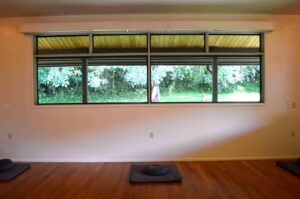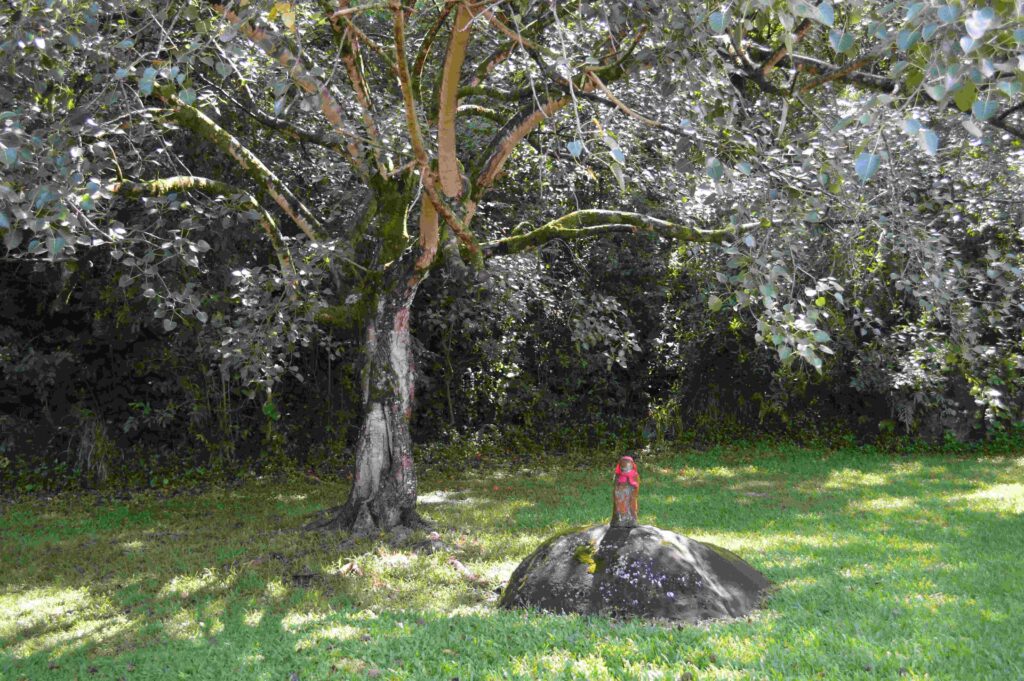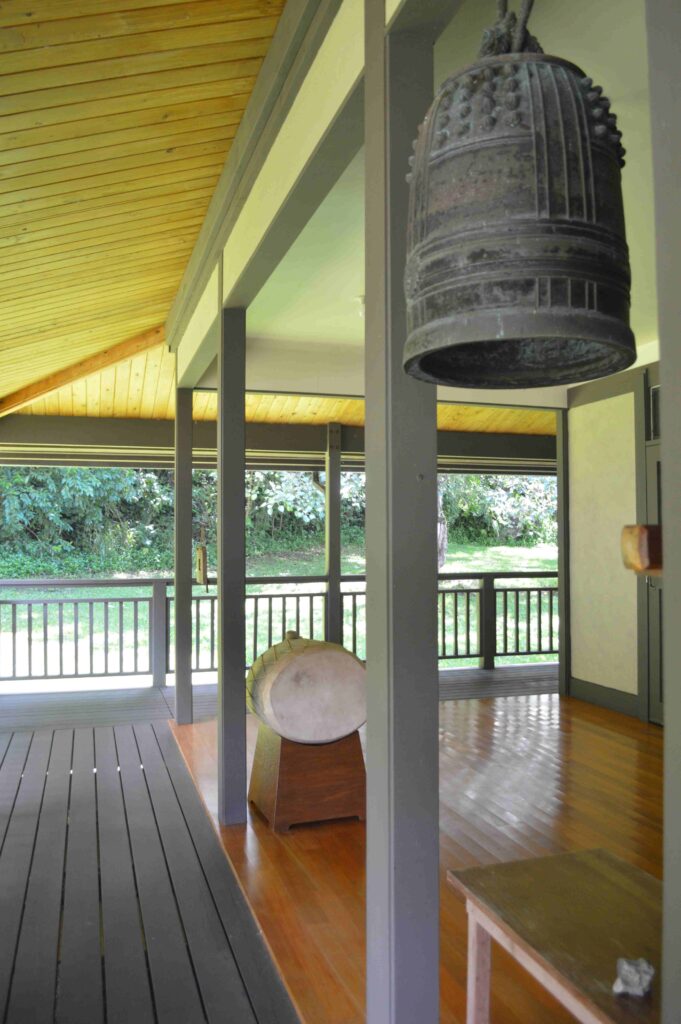I’ve bristled at the idea of “spiritual community” for most of my adult life. The term called to mind pie-in-the-sky beliefs that offered platitudes for the eternal problems of evil, mortality, and suffering.
That didn’t stop me from developing an intense curiosity about the nature of life. So, I embarked on somewhat of a loner’s meditation path: I got up each morning and sat for 20 minutes. As I got ready for work, I listened to YouTube videos of non-dual teachers. I read dozens of books on Buddhism, the path that seemed most grounded and comprehensive. I did most of these studies and practices by myself, aside from a few meditation groups I sat with once or twice.
Then, in late 2021—completely unrelated to that path—I moved to Honolulu. Call it coincidence, synchronicity, or just plain old luck, but an active Zen community was right in the neighborhood I moved into. Even luckier, the zendo had a job opening for a part-time administrator that I applied for—and got. Suddenly, I was practicing zazen (seated meditation) for two hours twice a week, and no longer by myself.
Even as someone with no interest in the rituals of organized religion, I started going along with the bows and the chanting and the dozens of other little rules to pay attention to in Zen. I’ve finally begun to embrace spiritual community as a crucial element of life.
I’ve also come to understand that it plays a vital role in healthy societies.

When spirituality is about the lowercase-s self
In the hyper-individualistic culture of the U.S., conversations about wellness and spirituality often prioritize, unsurprisingly, the individual: How to meditate for greater productivity, how to manifest your dream job, how to attract wealth, etc. In this way, we often treat spiritual practices as a means to an end—and that end is about us, as individuals, living our personal best lives.
While these aren’t necessarily bad reasons to take up a practice, they do water down the deeper impact of strong spiritual communities. They’re meant to encourage less self-focus and allow us to be there for one another. Effective spiritual practices surely pry us away from personal, narrow visions of what we want life to be like. The people we practice with hold us together in a world filled with cruelty and delusion.
This isn’t to say that all those who practice will become selfless and kind. On the contrary: There are reasons 29% of Millennials (my generation) have strayed from organized religion. Growing up, many of us noticed the glaring hypocrisy of our spiritual communities. Religious leaders can say the right words but do terrible deeds. We’ve rightly begun to question why we should respect those who abuse power and the institutions that enable this behavior.
But as Americans shift away from religious tradition and community, I can’t help but feel we’ve thrown the baby out with the bathwater. Now, less than half of the American population belongs to a faith tradition. But human beings have been congregating around a shared sense of meaning for as long as we’ve been keeping track of history.
Today, it’s easy to belong to a half-dozen online forums about knitting or cosmetics. But these surface-level interests don’t bring resolution to the existential questions that lie at the core of all human beings.

Spiritual community for ourselves and for each other
Of course, the crux of Zen is to see that the divide between self and other is not what we think. Similarly, many religions regard the individual as a microcosm of the macrocosm. Following this logic: If the spiritual community can strengthen a population, then stands to reason that it should strengthen the individual as well.
And this is true. Study after study shows that religious and spiritual people benefit in a variety of ways: Greater longevity, more confidence, higher resilience, and even better physical fitness have all been correlated to one’s commitment to spiritual life. So, even though the focus of practice isn’t all about us, it goes to show that spiritual community is one of humanity’s oldest wellness tactics.

For me, knowing these things wasn’t enough to compel me into a group until I stumbled upon one that fit. In my time with the sangha, I’ve seen that Zen isn’t for everyone. When I help out with orientations at the zendo, I keep track of participants to see who’s interested in returning. A very small percentage of people with an interest in Zen become practitioners.
However, there are dozens of groups across the globe that might strike a chord with you. We’re all familiar with the intuitive powers that guide us to “our people.” When you find a group that seems like it might fit, I encourage you to have patience. Not all sermons will speak to you; not every retreat will be “life-changing.” Still, it’s important to stick with it, even in those moments you don’t see any benefits.
I’ve asked a thousand times why we bow to an altar, why our teachers wear robes, and why we give symbolic offerings to ghosts when we want to know reality.
And honestly? No one’s offered me sufficient explanations, but I keep going anyway.
There’s something about zazen that helps me no longer need answers in order to be satisfied.

Get more like this—Sign up for our daily inspirational newsletter for exclusive content!
__
Photo: Lish Troha
